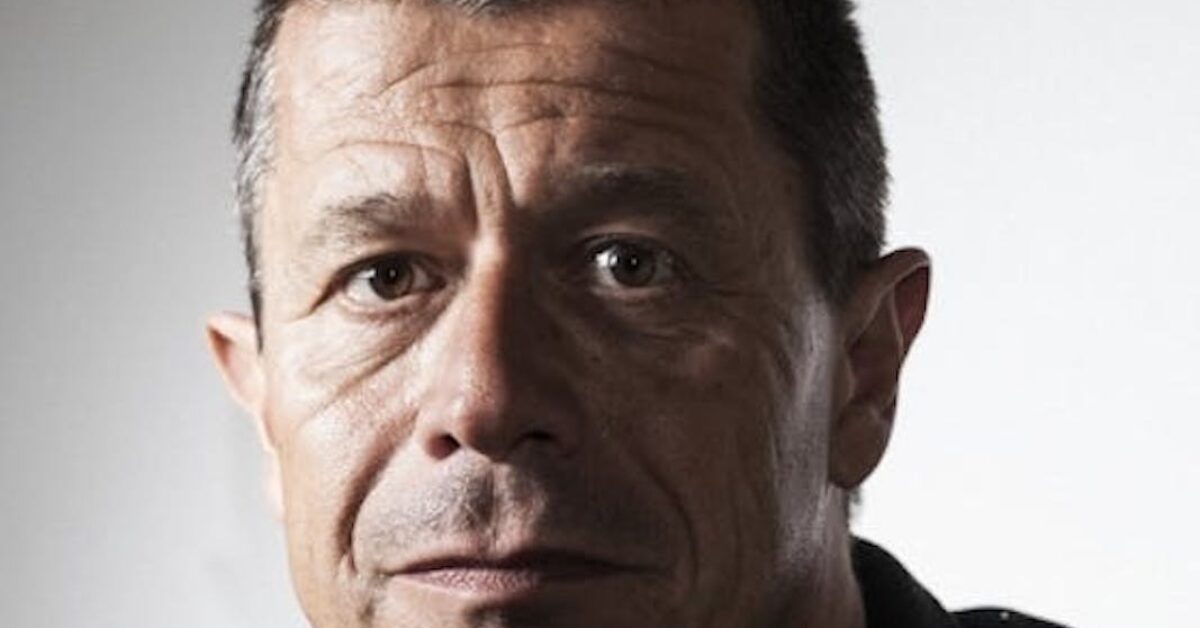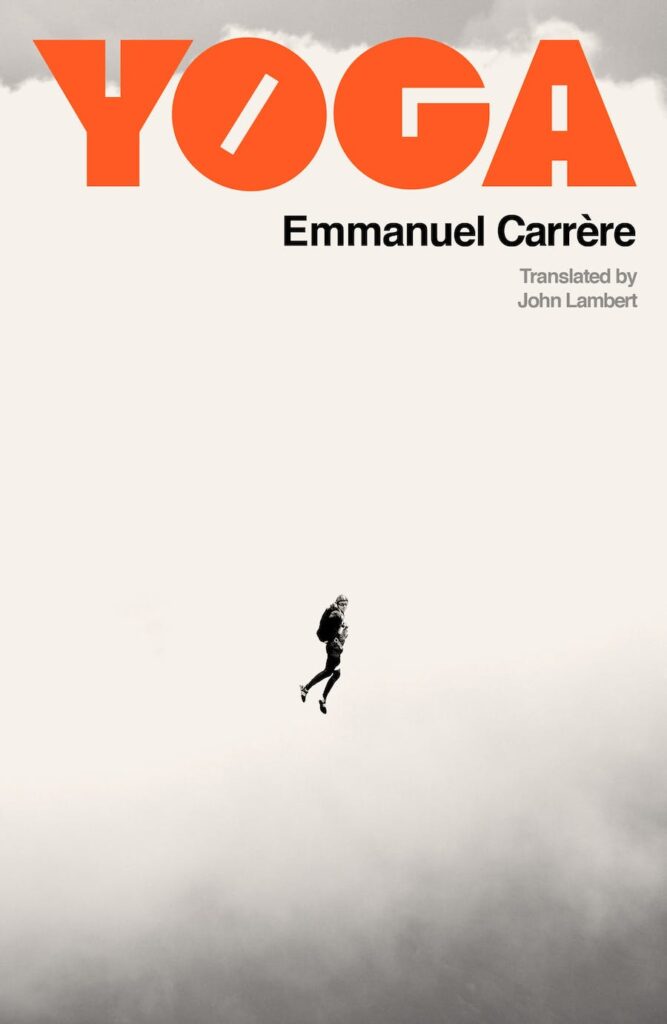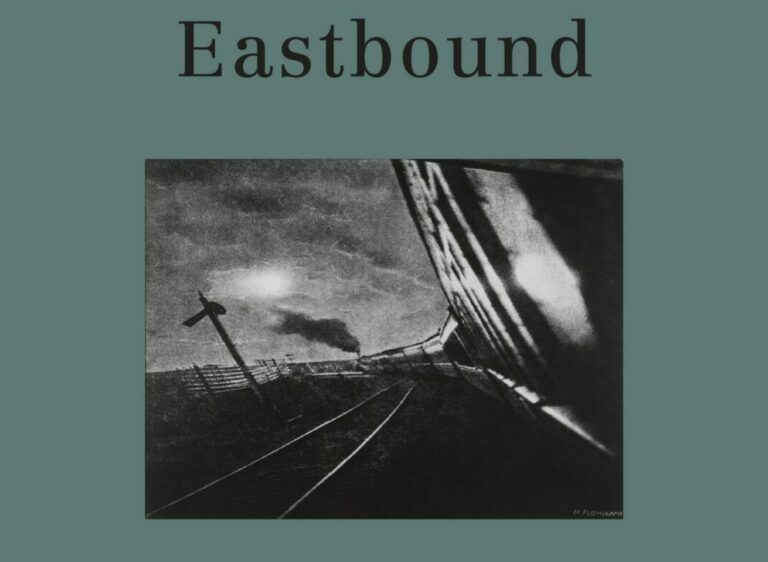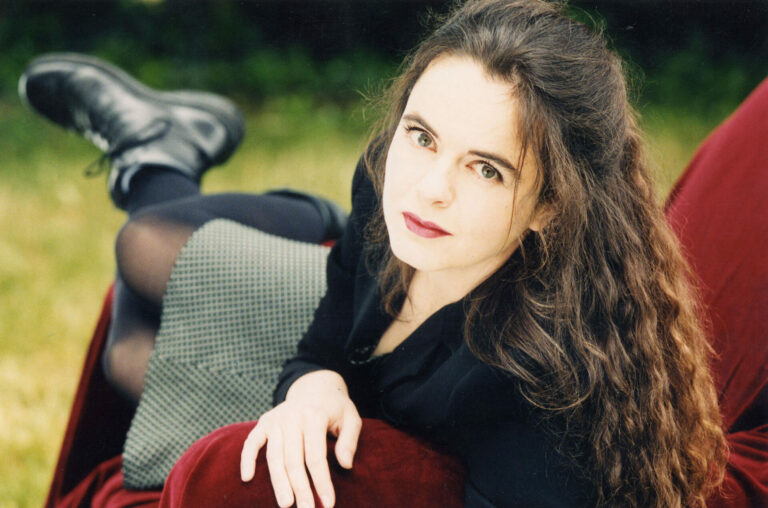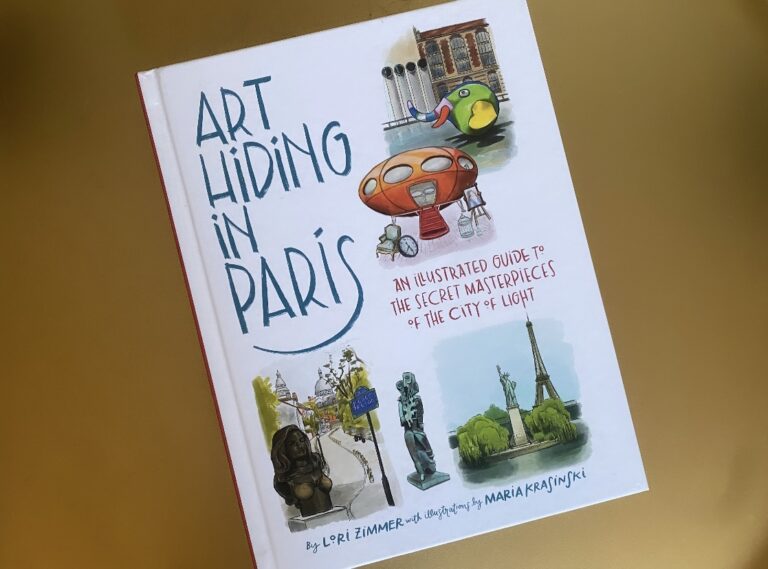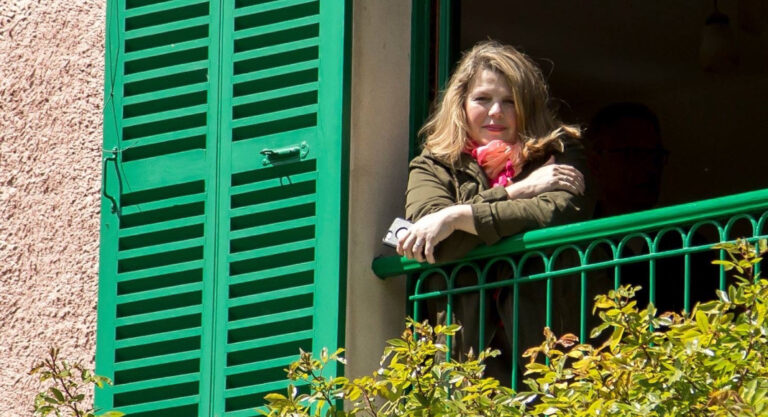Even a novice at meditation knows that when a thought comes into your mind, you are not to berate yourself. You are to observe rather than engage: “Oh, there it is again, me thinking I’m a failure, me worrying over so-and-so, me …. Whatever.” But in “real life” we usually don’t have access to another mind’s quixotic self-perusal. In Emmanuel Carrère’s latest book, Yoga, we do.
Carrère begins his book by saying he set out to write “an upbeat, subtle little book” on yoga. Instead, he wrote Yoga, an extended think piece that covers four years of his life, mixing personal narrative with philosophy, biography, journalism, art criticism, and travelogue. He begins at a meditation retreat, frankly and intimately narrating his experience (present and past) with both tai chi and meditation. His stay is interrupted by the news of the 2015 Charlie Hebdo shooting, in which one of his friends has been killed. Carrère must return to Paris to give a eulogy. This tragedy and an unnamed domestic crisis subsequently trigger a severe depression and extended hospital stay. The implication (never fully explored) is that he’s sabotaged his happiness (and second marriage) with an infidelity, as much spiritual as it is sexual, with a woman he met at a different yoga retreat.
A July 2022 New Yorker profile of Carrère, “Emmanuel Carrère Writes His Way Through a Breakdown,” explains the obvious omissions in Yoga: Carrère is contractually obligated not to write about his second (now ex-) wife without her permission. The profile picks up Carrère’s biography where Yoga leaves off, letting us know that Carrère is now living with the much younger woman he meets at the end of Yoga.
Carrère’s misery is relieved, finally, if not completely, by two things: an accurate mental health diagnosis, offering him a late-in-life awareness that his problems are at least partially chemical, and an attempt to engage with those in more trouble than he, notably the young Afghan refugees on a Greek island where he volunteers briefly. He is (like so many of us) apt to ruinous self-reflection when alone, and less sunk in self when he’s in the company of others.
Central to the personal piece of Yoga’s narrative is Carrère’s self-proclaimed major fault: his “unwieldly despotic ego.” He is obsessed with achieving the very literary greatness that others have already ascribed to him. Karl Ove Knausgaard has described Carrère as “the most exciting living writer.” A 2017 New York Times profile noted that Carrère is “widely understood as France’s greatest writer of nonfiction,” and that he has “managed to write one masterpiece after another.” And yet he is hungry for more reassurance.
Throughout Yoga, Carrère juxtaposes his “neurotic misery,” as he terms it, and “ordinary unhappiness,” without slighting either form of suffering, even though he does critique his own privilege. While on the Greek island of Leros, Carrère stays with Erica, a woman whose personal “shadow,” the post-stroke physical manifestation of her multiple griefs, is as compelling as the harrowing trials of the young Afghan refugees he meets. That Erica’s circumstances are, in part, fictionalized is a somewhat confusing admission late in a book that has seemed to be, until that point, purely nonfiction. This is especially so as Erica’s story is such a showstopper, including the tragic and mysterious tale of her mentally ill sister, a woman with oddly slow movements who nonetheless used to play Chopin’s “Heroic” Polonaise frenetically fast. Erica’s story’s potential meanings multiply when placed alongside Carrère’s discussion of the purposefully slow movements of tai chi and his analysis of a video of Martha Argerich playing that same Chopin piece.
Despite his admitted flaws, Carrère is fascinating company, engagingly narrating and interpreting his life and loves, and the experiences of friends and strangers, as he unpacks his putative subjects—the mind, yoga precepts, and tai chi. He has lived a large life—as literary superstar, as witness to the Sri Lankan tsunami, as son of a major Russian scholar, as a film director—and is a clear polymath, as apt to reference Capitan Haddock in Tin Tin or Jack Nicholson in The Shining as he is to mention a Tibetan master or Plutarch.
Carrère can be funny and snarky—he describes one fellow writer as “a scowly no-neck apoplectic”—but his impulse is less to the black-and-white of judgment than the gray of careful and creative observation, layered consideration and analysis, making Yoga the opposite of yoga, as it fills rather than empties the mind. Indeed, late in the volume, Carrère quotes an Australian novelist as saying that writing is not so difficult, “All you have to do is tilt your head and drop everything onto a sheet of paper.” Reading Yoga is a bit like tilting your head and having the contents of that sheet of paper slide right in.
Debra Spark’s most recent books are And Then Something Happened: Essays on Fiction Writing and the novel Unknown Caller. She co-edited Breaking Bread: Writers from New England on Food, Hunger and Family, which came out in spring of 2022. She teaches at Colby College and in the MFA Program for Writers at Warren Wilson. She reviews books regularly for Frenchly.

